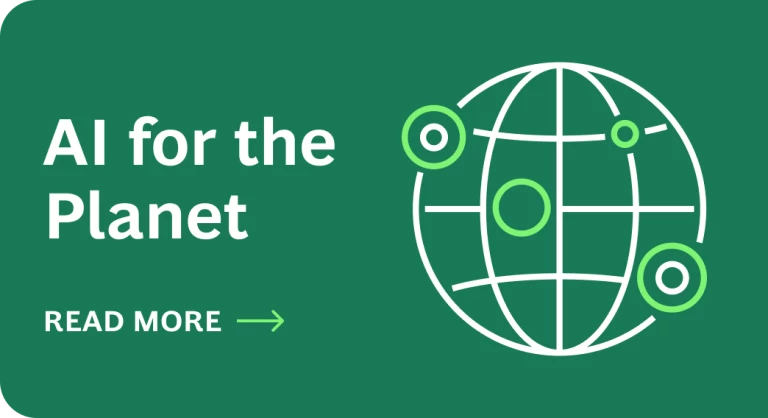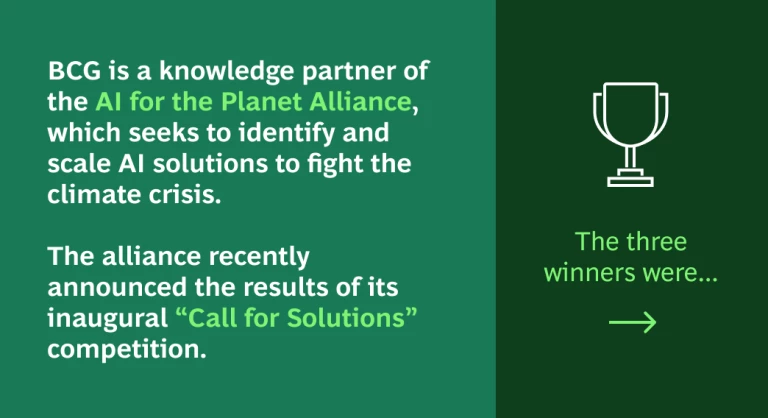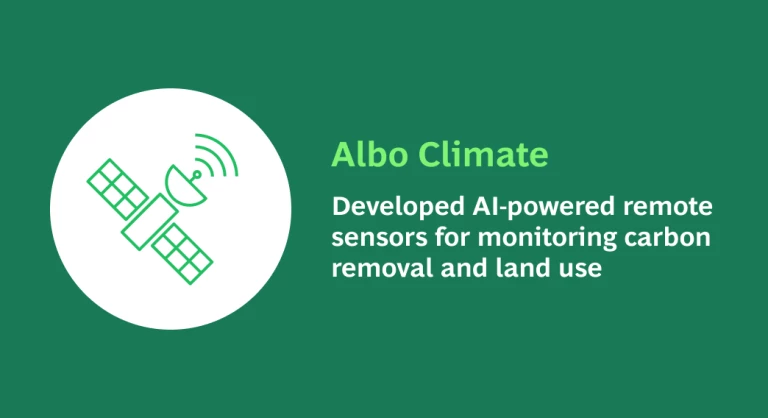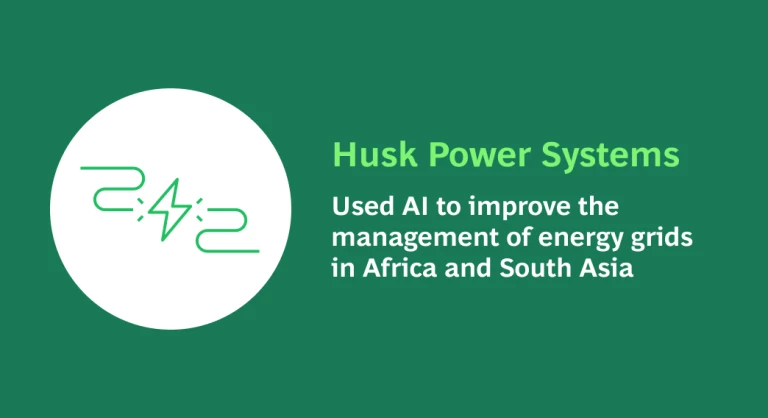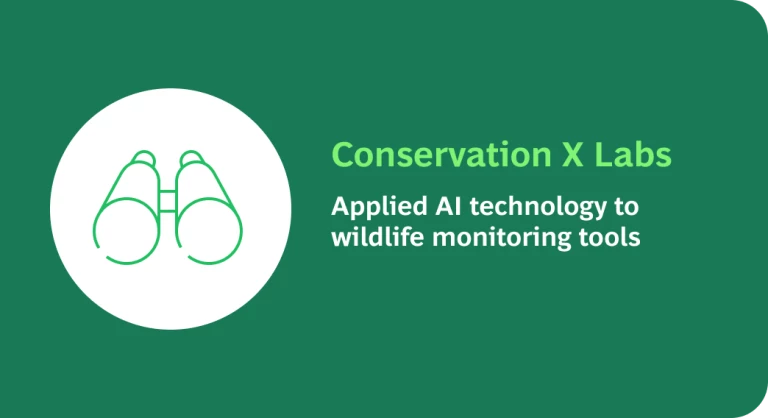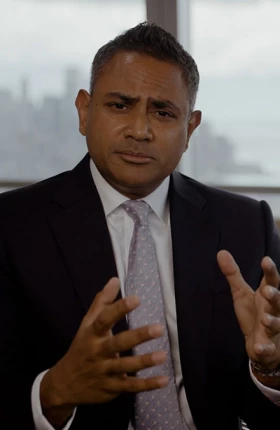Few problems are as daunting or pressing as climate change. It’ll take everything we’ve got—and then some—to meet the goals set forth by the Paris Agreement. AI is uniquely positioned to help.
With its ability to gather and interpret large, complex data sets on emissions, climate impact, and more, AI can enable a more informed and data-driven approach to combating carbon emissions and building a greener society. It can also be employed to reweight global climate efforts toward the most at-risk regions.
AI’s Game-Changing Impact
AI has an ever-widening set of applications for mitigating climate change across organizations and industries—including those industries most responsible for producing emissions.
Manufacturers can use AI-based process controls to eliminate waste and improve energy efficiency. Rail operators can deploy AI technology to maximize infrastructure utilization. AI is also helping agribusiness address its emissions profile—by leveraging complex AI models that predict crop yields amid multiple climate variables, companies can optimize their agricultural practices and make educated decisions about production and land use.
And we’ve barely scratched the surface. Generative AI presents a new frontier for climate mitigation, adaptation, and resilience efforts; its ability to analyze even larger data sets, optimize business models, and track consumer sentiment, among other things, promises a wealth of sustainability-related applications.
Measuring—and Reducing—Carbon Emissions
To know where to focus their reduction efforts, organizations must first understand the full extent and composition of their internal and external emissions. AI can enhance companies’ measurement and tracking capabilities to the next level.
Businesses can use AI tools to automatically ingest and report data, calculate a carbon footprint, run simulations, set targets, manage abatement initiatives, and more. By identifying the most promising initiatives, tracking results, and optimizing operations, AI can help reduce companies’ emissions by as much as 40%—and deliver significant value in the process.
It’s worth remembering that AI is itself an energy-intensive endeavor, one that requires collecting and storing massive amounts of data and building computers capable of generating and running complex algorithms. As we pursue AI solutions, we’ll need to make those systems more energy efficient.
Supporting Carbon Removal
To achieve a net zero future, we’ll also need to accelerate our efforts to remove emissions from the atmosphere. AI can be useful in further developing carbon removal technologies such as direct air capture and carbon capture and storage—for example, assessing locations for capture and storage, optimizing the industrial processes and materials involved, and monitoring leakage.
Carbon sinks such as forests, algae, and wetlands remove carbon from the atmosphere naturally, of course. AI-based solutions can be an enabler here as well—by analyzing satellite images to detect deforestation, for example, or to estimate ecosystem carbon sequestration, AI can help guide the deployment of nature-based solutions, including land management and reforestation efforts.
In that vein, BCG has collaborated with the World Wildlife Fund to devise an innovative strategy for fighting illegal logging in sensitive areas—deploying machine learning to help evaluate hot zones, filter predictions, identify locations of illegal logging, and track proposed intervention points.
Promoting Adaptation and Resilience
While mitigation is critical, minimizing the effects of climate change will also require increasing our efforts at adaptation and resilience. AI can help manage crises, strengthen infrastructure, protect populations, and preserve biodiversity.
AI systems can assist in forecasting climate-related hazards, whether in the form of early warning systems or long-term predictions, and they can also be used to manage vulnerabilities and risk exposure—planning infrastructure development to minimize the impact of floods or droughts, for example, and protecting coastal regions from severe storms and rising sea levels.
Protecting Lagos from Rising Seas
We estimated that, if the city failed to address these risks, the cost of inaction could total between $27 billion and $34 billion by 2050, with $5 billion in damage to infrastructure alone and a loss in GDP of $22 billion. The total cost would likely be more than 12 times the current total budget of Lagos state, which includes the city and metropolitan area.
That’s why the city is leveraging data and analytics to build a robust adaptation and resilience plan to protect its key systems; in turn, the plan is helping Lagos mobilize financing for climate solutions and guiding the local government as it sets policy.
AI can also help transform our approach to water-related risks. Half the world’s population is vulnerable to severe water shortages; diseases linked to unsafe water cause more than a million deaths each year. Meanwhile, freshwater species and wetlands are both declining at an alarming rate. By optimizing our approach to water management, AI systems can support nature-based solutions to these problems—improving the supply of quality water while increasing biodiversity and the regeneration of freshwater ecosystems.
Elsewhere, AI technologies are being used to design greener smart cities in East Asia, optimize power grids, develop energy-efficient buildings, and effectively harness solar and wind power. And governments have enlisted AI technologies to forecast and moderate energy consumption.
Putting AI Solutions to Work
To unlock AI’s full potential for enabling climate action, organizations should do the following:
- Share data. To foster the innovation of climate solutions and facilitate their deployment, ensure that foundational climate data and models are available via a global commons.
- Build capacity. Provide broad access to a robust set of analytics solutions and experts to address climate change, especially in the Global South.
- Grow trust. Strengthen confidence in data and models through transparency and accountability via responsible AI and an open-source framework.
- Create ecosystems. Connect the public and private sectors and academia with startups to accelerate the development of solutions.
Technology can only do so much, of course. In the end, AI is not itself the cure-all to the climate crisis—instead, it’s an extremely valuable tool for helping us find, and implement, the best solutions.


